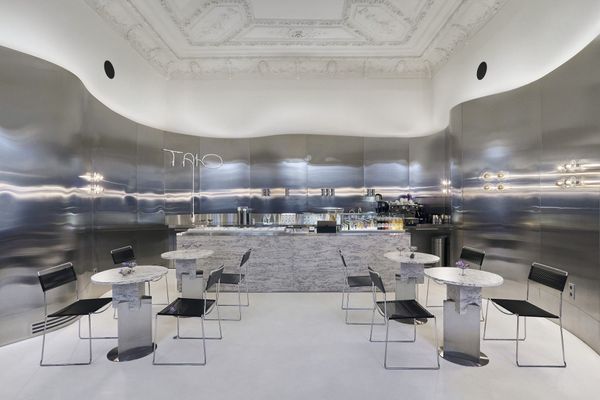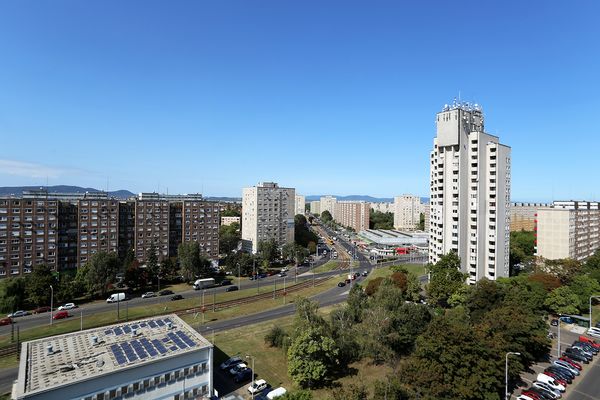Western sanctions with severe consequences, partially failed military operations, unrealistic superpower aspirations, and shrinking room for maneuver. We discussed these issues of the Russo-Ukrainian war, among other things, with Máté György Vigóczki, a Russia expert.
Six months have passed since the Russian invasion of Ukraine began. The Russians launched a full-scale offensive but then withdrew in certain areas. They have concentrated on the Donbas, where they have achieved results, and Sergei Lavrov recently stated that the geopolitical objectives of the war changed because of the Western weapon systems. How would you assess the last six months from the Kremlin’s point of view: success or failure?
If we start from what Russia’s initial objectives were – regime change, preventing Ukraine’s NATO accession, and demilitarization – we can conclude that only Ukraine’s NATO membership was prevented. The picture is not much better if we look at the second phase of the war, during which the aim was to occupy the entire Donetsk and Luhansk oblasts. Although the latter was finally successfully occupied, the siege of several cities in Donetsk will cost the Russian army further severe losses of time, soldiers, and hardware. I also consider the war a failure because of the, so far, seven adopted EU sanctions packages, of which the most critical provisions on energy carriers have yet to enter into force (except for coal). Additional failures include Moscow’s closest partners’ neutral stance, and I believe that the Kremlin would have also hoped for much greater support from China in this situation. On the other hand, due to the war’s consequences, Ukraine will be a weaker, more vulnerable country than it was before; so Kyiv has been weakened. I also find it hard to imagine Russia giving up the occupied Ukrainian territories in the near future, which is also a part of their success.

Because of Sergei Lavrov’s recent remarks on the changed geopolitical „coordinate system,” Russian troops would march as far as Odesa, cutting Ukraine off from its access to the sea. From Odesa, there is a direct route to the unrecognized breakaway state of Transnistria, which has recently announced its intention to join Russia. How realistic would such a scenario be?
At the moment, I do not consider Odesa’s occupation to be more than a mere political slogan. The city’s population is twice as big as Mariupol’s before the war, and its prestige is similar, meaning its siege would undoubtedly come at a very heavy price. Moscow neither has enough soldiers nor the landing capabilities, mainly because of the long-range Ukrainian artillery. It would be different if Russia officially declared war with mass conscription, but I see little chance of that now in early August. It follows directly from this that the occupation of the breakaway Moldovan territories can be ruled out. I believe a more effective tool for the Kremlin to prevent Chisinau’s integration into the EU is maintaining the status quo and supporting reunification with keeping Transnistria’s large autonomy. However, I admit that the situation was similar in the breakaway areas of eastern Ukraine before 24 February, so this argument is not that strong anymore. Not surprisingly, there is a growing concern in Moldova.
Could Moldova be the next target if Russia succeeds in its operations in Ukraine?
The Moldovan political leadership and society see it as a realistic scenario. However, I do not see any sign of the invasion of Moldova being seriously considered by the Russian political elite or public opinion. In Ukraine, nationalism and historical narratives are also important elements in addition to security policy objectives, which are not so relevant for Moldova or Transnistria. But a clear, decisive Russian success would mean Moscow’s increasing influence in Chisinau.

A growing number of sources report that well-educated, highly skilled intellectuals leave Russia in droves. What kind of place has Russia been for a young urban intellectual, and what has it become because of the sanctions?
The problems caused by the IT professionals’ exodus since February have already been discussed at the national level in one of the State Duma’s committees. The committee estimates that the size of their emigration reached 70-100 000 in April alone, and it is a major concern as their role in the economy is crucial. This trend is massive damage to Russia. Modernization, which relies now on internal resources, will be slower and more costly without them. The same is true for the whole urban intelligentsia, as they have passports, marketable skills, expertise, sufficient language proficiency, and at least a minimum of financial resources to start a new life abroad. The number of those who decide to emigrate has been rising since 2011, but the exodus could reach unprecedented levels due to the war. I think this also indicates the extent of Russia’s isolation.
Vladimir Zhirinovsky said on 27 December 2021: „I would like 2022 to be a peaceful year, but I love the truth, and I have been telling the truth for 75 years. It will not be a peaceful year. It will be the year when Russia becomes great once again, and everyone will shut up and respect our country.” To what extent can Russia become a great power under the present circumstances?
There is an ongoing debate about the Western sanctions’ effectiveness, with factual data being cited for and against them. Nonetheless, this war will have much longer-lasting and much more fundamental effects on Russia than what can be expressed with economic figures. An essential part of Russia’s 20-year Putin era has been the country’s return to the regional and global political stage. From the Russian historical perspective, it is important that the country has been seen as a great power for at least 300 years and as a global superpower since the Second World War. The weakening and decline of Russians’ power after the dissolution of the Soviet Union was actually an exceptional period. During Putin’s first two presidential terms, the country had the chance to begin to consolidate domestically with the parallel emergence of capabilities to be able to be a great power again. The economic crisis of 2008-09, ironically, the return of Putin in 2012, and the ongoing war with Ukraine since 2014 without any significant long-term gains, have reduced Russia’s chances, while there has been little change in the level of ambition. However, the full-scale, prolonged war that started on 24 February is destroying the remaining capabilities. Firstly, Russia’s military reputation suffers irreparable damage, while its allies prefer to maintain their neutral position. At the same time, the West (the EU and NATO), the main rival of Russia, seems unprecedentedly united from Moscow’s perspective now. Moreover, the accession of Finland and Sweden to the Western military alliance poses an additional challenge for Russia. And at the global level, it lacks the tangible support of its Asian partners. Neither China nor India can offer a real alternative to the West as a buyer of Russian energy or as a general economic partner. The Kremlin is now losing its potential to offer any serious alternative for regional cooperation, and at the global level, its significance is limited to its nuclear deterrence and its veto power in the UN Security Council. At the moment, I see Russia as remaining an important regional player, but the current political leadership is significantly eroding even the country’s main partners’ trust in Russia. It is also true that in global politics, which has been unipolar from Moscow’s point of view, a multipolar world will come without Russia. The Kremlin will maximum be able to pretend that Russia is a global power with some military exercises, for example, in South America, with vetoing resolutions in the UN Security Council, or with the support of anti-Western leaders in the Third World.

The strength of the „Russian soul,” that Russians can survive any hardship or sanctions is often emphasized. Most of the sanctions do not affect the average Russian citizen, but the question remains: in what state is Russian society now, and what the future holds for it if isolation persists?
I am not a sociologist, but the scale of emigration has been quite dramatic over the past decade, with estimates of over 400,000 since February this year, meaning an absolute record. If we add that there have only been two years of population growth since the dissolution of the Soviet Union, we can conclude that Russian society is in a constant downward spiral. Russians are much more resilient to economic crises than Western societies, but the country still lacks the strength to rebuild itself. Even winning the war could not change this fact. According to Russian sociologist Alexei Roksa, birth rates in 2022 are expected to be as low as in 1943-44. I simply see what is happening to Russian society as a tragedy. And if there is no change in political leadership at the next presidential election in 2024, political freedoms will continue to be further curtailed, with all the subsequent effects and consequences.
Máté György Vigóczki is a Hungarian expert on Russia, a Ph.D. student at the University of Pécs, and a researcher at the MCC Centre for Geopolitics in Budapest.
Graphics by Roland Molnár Hypeandhyper

Classicism and modern elegance mingle in this Ukrainian ice cream parlor











